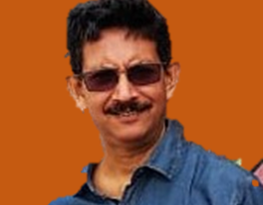The Essence of A Debate
THE ESSENCE OF A DEBATE
Swapan Jyoti Sarma
In the Mahabharata, Sulabha, a female ascetic or Rishika, wins a debate with philosopher-king Janaka in the presence of eminent Brahman scholars. Like Janaka, she belongs to the ruler warrior community and not the priestly and scholarly community. Even though Janaka is a husband and a king, he pursues philosophical truth, whereas Sulabha is a renunciant and opts out of social institutions like marriage, caste, and community. When Janaka uses anti-women arguments to criticise Sulabha’s unconventional behavior, Sulabha successfully establishes, on the basis of Hindu philosophical principles, that there is no essential difference between a man and a woman. She also demonstrates by her own example that a woman may achieve liberation by the same means as a man.
A debate usually signifies a formal discussion on a particular matter in a public meeting or legislative assembly, in which opposing arguments are put forward and which usually ends with a vote. The word ‘debate’ comes from Old French debatre , which means “to fight,”. Debates are seen to be an essential element of a democracy.
In Greece, during the 5th Century BC, a group of travelling teachers, called the Sophists, were given the responsibility to train and educate the sons of Athenian citizens. The Sophists taught the skills (sophia) of rhetoric and oratory which were considered essential for the education of the Athenian citizenry. Rhetoric is the art of composition, while oratory is the art of public speaking. Instead of science, philosophy, mathematics and ethics, the Sophists taught the subtle art of persuasion. The Sophists were relativists and believed that there was no such thing as a universal or absolute truth, valid at all times. Everything is relative and there are no values because the individual man is the measure of all things. Socrates (c.469-399 B.C.), perhaps the most noble and wisest Athenian to have ever lived, came from the ranks of the Sophists.
Public debates(parisad) were common in pre-classical India. There are frequent references to debates in the various Upaniṣads and in the early Buddhist literature. Assemblies (pariṣad or sabhā) of various sorts, comprising of relevant experts, were regularly convened to deliberate on a variety of matters, including administrative, legal and religious. The earliest text of ancient India to contain an example of an analogical argument in a canonical form for debate is the Caraka-saṃhitā, the Sanskrit text on Ayurveda, written likely between 100 BCE and 200 CE.
The classic debate between Adi Shankaracharya and Madana Misra on Ritualism (Karma Kanda) and Renunciation (Jnana Kanda) of the Vedas, is legendary. Misra allowed Shankara to choose the judge. Shankara decided that none but Madana Misra’s wife Ubhaya Bharati, a learned scholar herself, can be the most appropriate judge for this debate. They also agreed that if Shankara loses in the debate, he would become a disciple of Madana Misra and get married in the life. If Madana Misra loses, he should become a Sanyasi and disciple of Shankara.
The debate between the two continued for months in the presence of scholars. Madana Misra, had a very sharp intellect and a solid grasp of logic. Shankara had the realization of the ultimate Brahman and knowledge of Maya. After a long period, Madana Misra was almost ready to accept defeat, when his wife, Ubhaya Bharati, declared that in order to defeat a man in debate the opponent should also defeat his wife. Knowing very well that Shankara was a strict celibate, she immediately started discussing relationships and marital obligations. Shankara confessed that he had absolutely no knowledge in this area. However, Ubhaya Bharati offered Shankara some time to study about this topic before resuming the debate which Shankara immediately accepted. Through his yogic powers Shankara temporarily left his own body to enter a dying king’s body. Shankara learnt from the queen, all that he needed to know about man-woman relationship. Empowered with this newfound knowledge, Shankara returned to resume the debate with Ubhaya Bharati. This time, he was clearly unbeatable. Ubhaya Bharati and Madana Misra bowed their heads in humility and accepted defeat and became followers of Adi Shankara and staunch vedantins.
Debate is the bedrock of democracy in any culture or political system. The most basic and valued fundamental right is in Article 19- Freedom of speech and expression -which allow citizens to form and express opinions; dissent and support any matter. Debate will inevitably generate opposing views. It creates a constructive tension out of which bold ideas can emerge. By trying to build consensus and an inclusive political process, governments can maintain and bolster stability. In the Indian context, the passing of The Goods and Services Tax Act marks a watershed in the history of Indian democracy. The Bill took 16 years since its conception stretching across various governments. It was indeed a victory for Indian Democracy when the Bill became an Act after it was put to vote in the Rajya Sabha on 3rd August 2016 and was passed with 203 ‘AYES’, 0 ‘NOES and 0 ‘ABSTENTIONS’.
A challenge facing democracies today is making its citizens, especially the youth, active participants in the decision-making process through public debates. Public debates are essentially a series of forums, including educational institutions, where opinions, interests and expectations are expressed on an issue that concerns the whole or part of the society.
Debate is not necessarily a purely rational affair. People are not purely or even primarily rational creatures. They base their decision making on all sorts of stimuli. The skill of debate is how to tap into the stimuli that helps you, avoid the stimuli that doesn’t, and somewhere in the process, communicate the facts and logic of your position. This was amply demonstrated by Shakespeare in Julius Ceaser, Act 3 Scene II. Brutus addresses the citizens of Rome, justifying the murder of Julius Ceaser. The citizens are convinced of his arguments and filled with hatred for Julius Ceaser. Brutus then allows Mark Antony to speak on Ceaser’s glories. Mark Antony delivers a carefully crafted speech, working his way through the minds of the Roman citizens, till they rise in mutiny against Brutus and his co-conspirators.
If democratic institutions and traditions are to thrive, debate is the sine quo non. To quote John F Kennedy, “Without debate, without criticism, no administration and no country can succeed—and no republic can survive”.

Swapan Jyoti Sarma : A Graduate in Economics from Cotton College, MBA from Guwahati University and LLB from Govt. Law College. Sri Sarma joined LIC of India as a Direct Recruit Officer of the 14th Batch and rose to the cadre of Deputy Zonal Manager. At present he is a Visiting Faculty in three leading management and educational institutes of Guwahati




